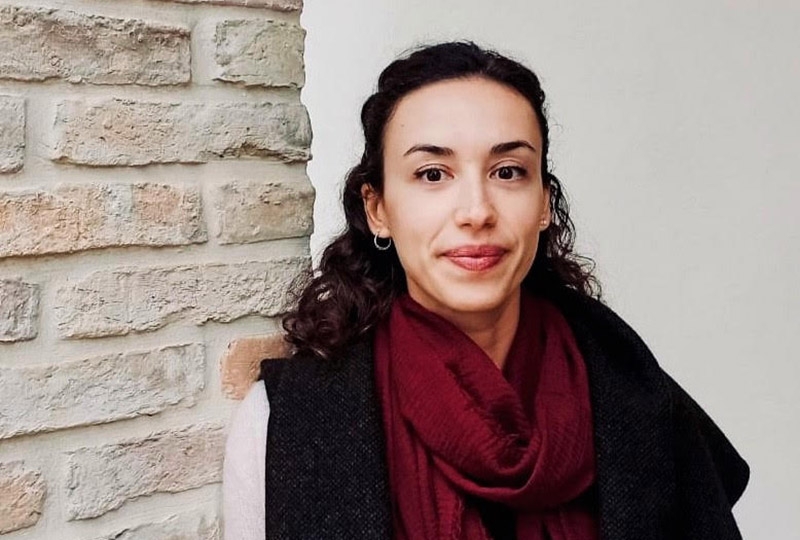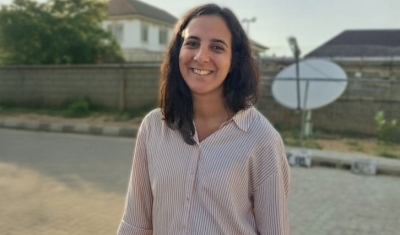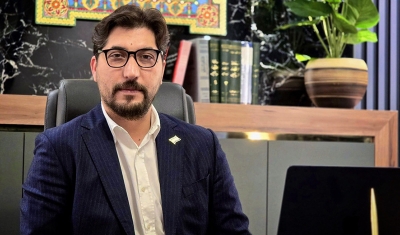8 April 2025
Rubina Paparelli, Head of Syria Support at the International Committee of the Red Cross, tells about her experience taking our Executive Master of Advanced Studies.
Could you tell us about your background and your current role?
Over the past ten years, I have engaged with individuals who have been forced to flee, displaced, detained or gone missing due to armed conflict and human rights violations, by working with organizations in the field of migration and refugees and primarily with the International Committee of the Red Cross (ICRC) for the past seven years. This experience has allowed me to maintain direct relationships with protected persons, as well as state and non-state actors, enabling me to assess and document alleged IHL/IHRL violations, with the aim to influence parties to the conflict's behaviour to comply with international law.
Currently, I lead the ICRC Syria Support Office, based in Beirut, Lebanon, and Amman, Jordan. In this role, I am driving efforts to enhance ICRC's actions for individuals missing due to armed conflict, while also advancing the organization's support for third-country nationals in Syria and facilitating engagement with their countries of origin.
What motivated you to join this programme?
With a Master's degree in Middle Eastern Studies and a growing interest in International Humanitarian Law (IHL) and International Human Rights Law (IHRL) sparked by my professional experience, I felt compelled to deepen my understanding of international law. This led me to pursue the Executive Master, which provided me with a solid foundation to complement my practical exposure.
I was especially drawn to the positive feedback from my professional network and the flexibility of the online format, which allowed me to continue working while studying. One of the greatest benefits, in my opinion, was being part of a diverse and highly experienced cohort of participants. Their presence not only enriched the learning experience but also provided invaluable moral support, especially during challenging times when I couldn’t attend certain classes. The opportunity for bilateral discussions helped me further explore and connect with the topics addressed by professors.
Although it was a demanding journey, it was undoubtedly incredibly rewarding and intellectually stimulating.
How was your experience with the professors?
I was truly impressed by the professors’ approachability and thorough preparation. Each one brought a wealth of experience, not only from an academic perspective but also from real-world practice. This created invaluable connections between theory and the practical experiences of participants, making the content highly relevant to our daily work.
Moreover, the inclusion of external speakers who deepened specific topics and shared their firsthand experiences was incredibly enriching, offering us fresh perspectives on key issues.
I particularly valued the professors' efforts to emphasize how the letter and spirit of the law go hand in hand. We explored emerging areas of law, opening our eyes to contemporary challenges—something that resonated deeply with me, as I had already encountered the real-world effects of these issues during my fieldwork.
How did you balance the programme with your professional life?
Due to work commitments, I wasn’t able to attend live classes, but I made it a priority to watch the weekly recordings, and was truly grateful for the Academy's flexibility. This support, along with the ongoing encouragement from my cohort, helped me stay on top of the coursework, giving me the time needed to study properly and prepare for exams without further delays. Looking back on the past year and a half, I can confidently say it was all worth the effort.
How has it contributed to your career?
I would begin by emphasizing the knowledge and confidence I’ve gained in addressing IHL and IHRL, expanding well beyond the topics I was already familiar with in my professional work. I particularly valued the insights we gained into the intersections between IHL/IHRL and counterterrorism, as well as the exposure to areas of law I was less familiar with, such as International Criminal Law (ICL) and socio-economic and cultural rights. These were areas in which I had little prior experience, but the program provided invaluable insights.
If I were to use a metaphor, I would say the Executive Master gave me high-quality lenses or a comprehensive dictionary to better analyse and understand the interconnectedness of various fields of international law. Even when answers are not immediately apparent, I now feel better equipped to search for them. This experience has not only sparked my curiosity for further study but also enhanced my ability to communicate complex aspects of international law in a way that resonates with different audiences.
More information about our Executive Master of Advanced Studies in International Law in Armed Conflict can be found here.





